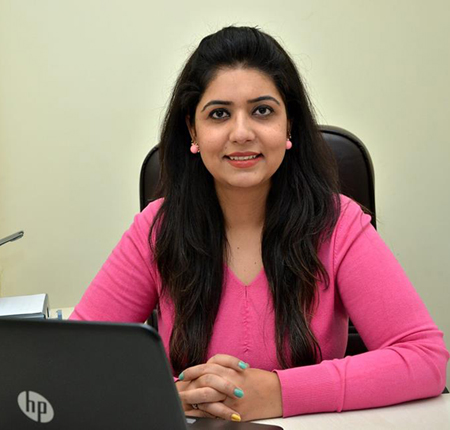Here is How it’s Affecting Your Mental Health, Warns Shivani Sadhoo
Social media apps let you do plenty of cool things. One of the most popular features that one uses is face or selfie filters. Not only can one share pictures of themselves whenever they want, but nowadays several social media apps are providing filters that transform your photographs however you like.
These filters could include anything from giving yourself puppy or bunny ears to fixing your perceived imperfections. You do not have to try very hard to get a filter that can sharpen your cheekbones, smoothen your skin, thin your nose, and achieve the coveted ‘airbrushed model’ appearance. If the apps and filters can assist you to look ‘better’, then where is the problem? Can social media filters impact your mental health?
Psychologist Shivani Misri Sadhoo, in this blog, shares how your mental health is being affected by the social media face filters, that you may not know.
Selfie Dysmorphia
A popular social media app has given rise to a two-letter word. A term coined ending with the word “dysmorphia” (many of you perhaps already know what app name is used before the word dysmorphia).
The word was actually coined by cosmetic surgeons. This social media age continuously subjects us to pictures of ourselves. There are a lot of opportunities to scrutinize appearance and obsess over perceived flaws. When you alter your photo using social media filters, you may feel you have created a better appearing version of yourself. You perhaps also feel like this is what you must look like in real life. Cosmetic surgeons say that more people bring their social media-filtered selfies to consultations. They specify what they need to be fixed based on these altered photos. In several cases, the requests they make are not even physically feasible. Selfie dysmorphia is not just a medically recognized condition, but shares ties with grave mental health issues.
The Mental Effect
A study investigating the association between social media use and body-related behavior among adolescent girls saw negative mental health results. Results indicated that participants who shared selfies online reported higher levels of body dissatisfaction. Selfie manipulation is also linked to greater body-related concerns. Studies indicate that negative body image creates a broader risk of anxiety, depression, and even suicidal thoughts in teens.
Several cosmetic surgeons also have a growing concern regarding body dysmorphic disorder. BDD is classified on the obsessive-compulsive spectrum. It is the excessive preoccupation of thought with imagined flaws in one’s appearance. It could be hard for doctors to distinguish between a person having unrealistic expectations of plastic surgery and one experiencing dysmorphic thoughts. A study also found that plastic surgeons could only identify nearly 5% of patients who had screened positively for body dysmorphic disorder.
Your Appearance
Wish to know something ironic? You are actually in no position to judge your own appearance. Dr. Patrick Byrne, of Johns Hopkins University, says: “The only face in the world that you can never see is your own,”
You will only see pictures or reflections of yourself. Have you ever noticed that you can look drastically different from one photo to another? Pictures and reflections are not completely reliable sources for your image. Having that in mind, altering pictures of yourself is quite pointless. All this does is form one unreliable image from another. Also, most people will not even notice the ‘imperfections’ you might find in pictures of yourself.
Filters can definitely be a fun toy, however, they never dictate how you are ‘supposed to look. Remember a filtered version of you is not a ‘better version. If selfies and filters have you feeling low or unworthy about yourself try taking some break from your phone, and social media.
Remember that anything artificially formed can never replace your true personality. Does not matter how good the artificial form may look. Everything that is natural is supposed to be loved. And you have every right to love yourself the way you are.
After all, you should know that people who like or love you. They love your originality. Not your filtered version. Deep inside you know this too. So love yourself the way you are, says Shivani Sadhoo.

Shivani Misri Sadhoo is an internationally recommended relationship Counsellor by world’s biggest and most trusted study and research-based foundation for couples therapy – Gottman Institute. She is trained on specialised key relationship counselling Skills from AIIMS, VIMHANS and various other reputed institutions. Counselor Shivani Misri Sadhoo, is also Certified for Emotionally Focused Therapy, Cognitive Behavioral Therapy and Dialectical Behaviour Therapy.
Counsellor Shivani Misri Sadhoo is also a Certified Neuro Linguistic Practitioner with specialised training and experience in the field of affairs/betrayals, trust issues, difficulty communicating, conflicting values, bereavement, grief and loss (affairs, separation, divorce, childhood) and emotional health issue (anxiety, social anxiety, fear, depression, low mood).
Currently, Shivani Misri Sadhoo is one of the top counsellors with the HIGHEST Success Rate with over 17,000 happy couples and individuals (based in India and abroad), who has benefited from her therapy. Psychologist and Counselor Shivani Misri Sadhoo not only practice independently from her clinic in Greater Kailash, Delhi, India but also listed on the panel of eminent hospitals like IBS Hospital – Institute of Brain & Spine, Express Clinic, Fortis (formerly) based in Delhi.



